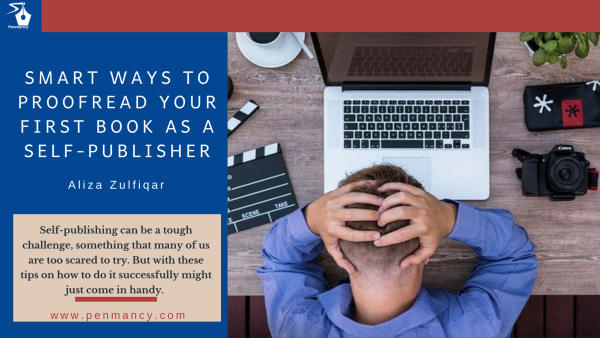
Being a self-publisher can be highly time-consuming. A publisher already has a lot of publishing work at hand, which is why proofreading may seem like a tiresome idea to implement. Fortunately, proofreading your first book has more to give than to take. Your book first can make or change the game for you, so it is essential to proofread it yourself and publish it after being fully satisfied.
Your first book can be a life-changer, but the costs of proofreading, checking, and publishing can add up to be very cumbersome for the writer. The best choice in the scenario is to proofread your content and save hefty costs and unsure results. If you want the perfect grip on your English skills, you can also join the 40 hour TEFL course to train you for proofreading in no time. So, let us discuss five intelligent ways to proofread your first book as a self-publisher.
Ways to proofread your first book as a self-publisher:
Pay attention to details.
The significant difference spotted between something good, and something great is the attention to detail. Details can bring life to your project and make your book attractive to the readers. Make sure you go through all content very carefully and check for the slightest glitches in the range. Some readers are highly enthusiastic and passionate when it comes to reading books. Therefore, leaving one or more traces of error can create a negative image of your first launch.
Be aware of grammar rules and regulations.
A writer expresses himself by his writings. However, some writers try to emphasize their writing styles and forget about the rules laid out by English Grammar. Especially on your first book launch, you should constantly go through each chapter verbally to make sure that there is no problem with the Grammar. You can read the content loudly to make sure every sentence makes sense. Furthermore, the help of a professional, renowned grammar check software can also be beneficial for the situation.
Keep an eye on redundancy.
Always remember that your audience is hard to impress. In particular, your readers may find some information monotonous and leave the reading right there. Many books are half-read by the readers, after which they realize that the content appears to be repetitive and redundant. Redundant readings seem bland to the audience, and they may choose an alternative from the wide variety available by millions of competitors out there. Try to make sure your book does not have repeated information. Keep your data to the point, precise, and elaborative. By removing redundant data, your text will appear more catchy and worth reading to the audience.
Check for factual information.
A storyteller often forgets his intent of stating an idea in the story. It is not your fault because you are the one writing hundreds of pages worth an extensive list of characters, each bringing out their own story. Before publishing your book, make sure you check for the facts, dates, and character information stated in the content. Any error in the factual information will make the audience sceptical about your writing and proofreading skills. Therefore, it is essentially important to keep a keen eye on the facts stated in your book before setting out for being published.
Don’t rely on unpaid spell checkers.
While looking for proofreading solutions, you may find a shortcut using an unpaid spell/grammar checker on the internet. While some of the grammar or spelling checking software is worth the try, most of them are just scams that point out the main mistakes while letting go of the fundamental errors in the content. Such spell checkers have no credibility whatsoever, and we would suggest not to rely on them solely. An alternative option is using either a very credible paid software that will correctly spell check your content or manually go through the data to make sure you didn’t make a mistake.
So, it can be seen that proofreading your first self-published book can come off as a responsibility. However, it will save a lot of your cost and time in publishing your book. Most certainly, the first impression is the last impression, which is why we recommend all writers to follow these quick and easy tips to get a well-written, intriguing, and grammatically on-point first publishing.
